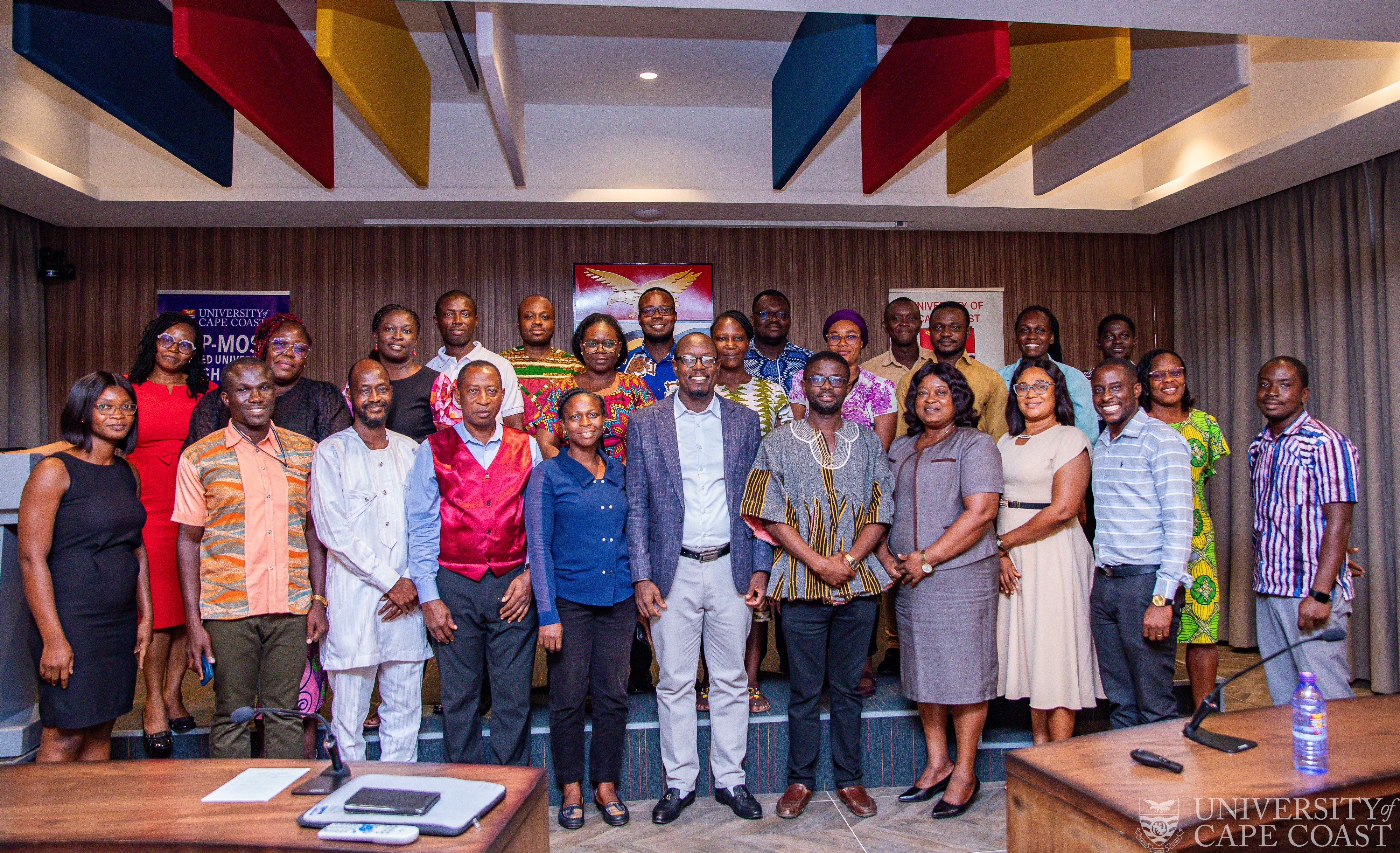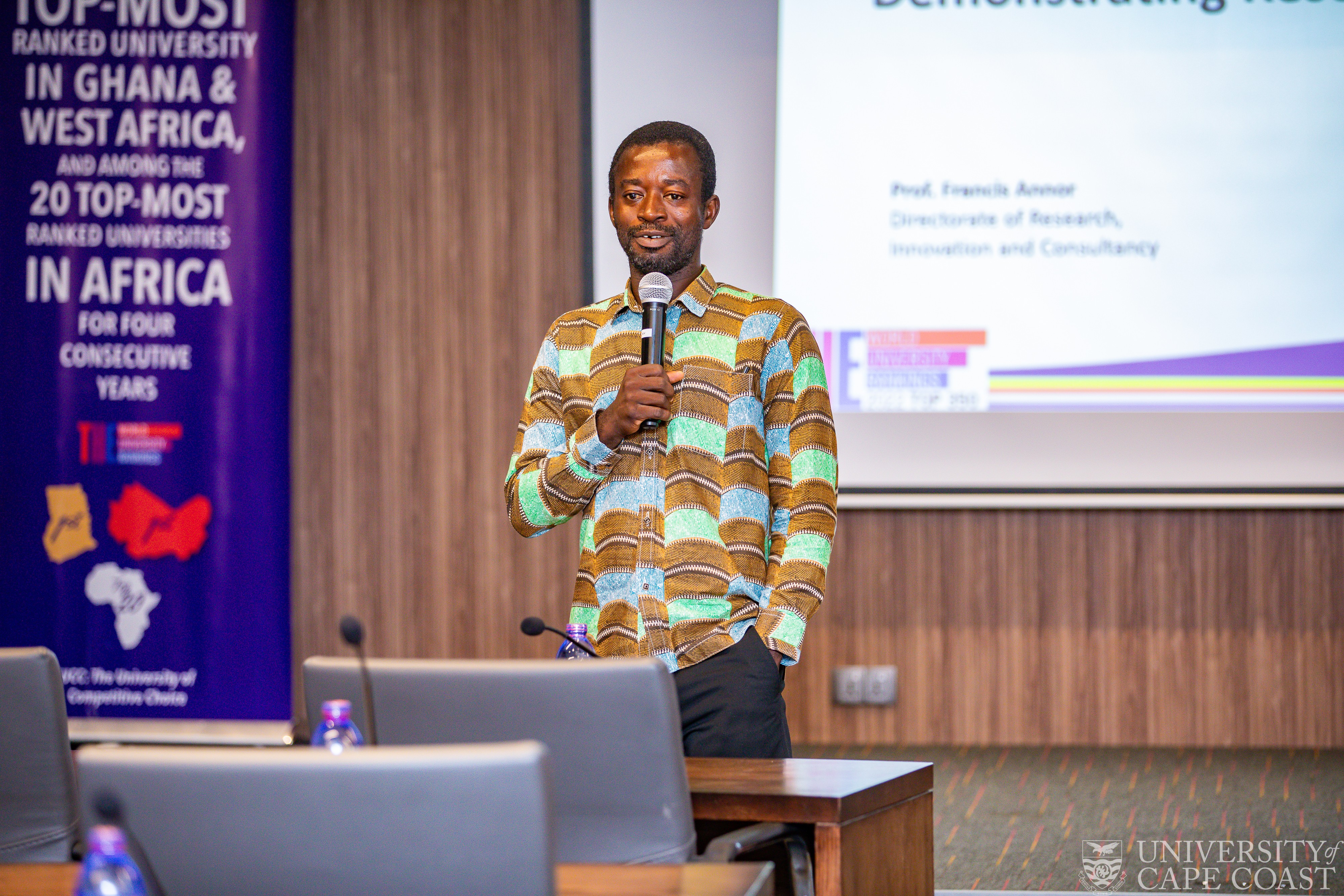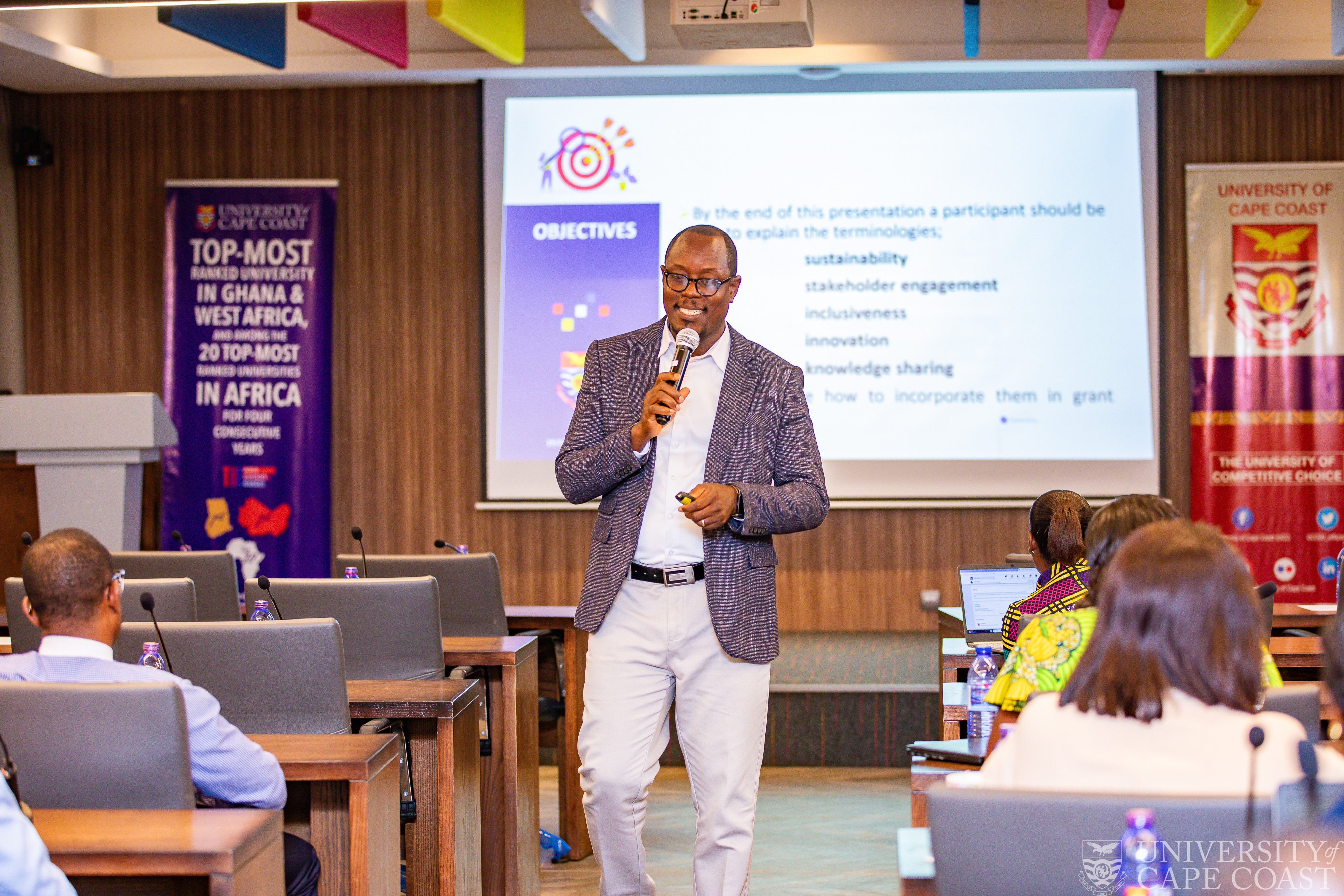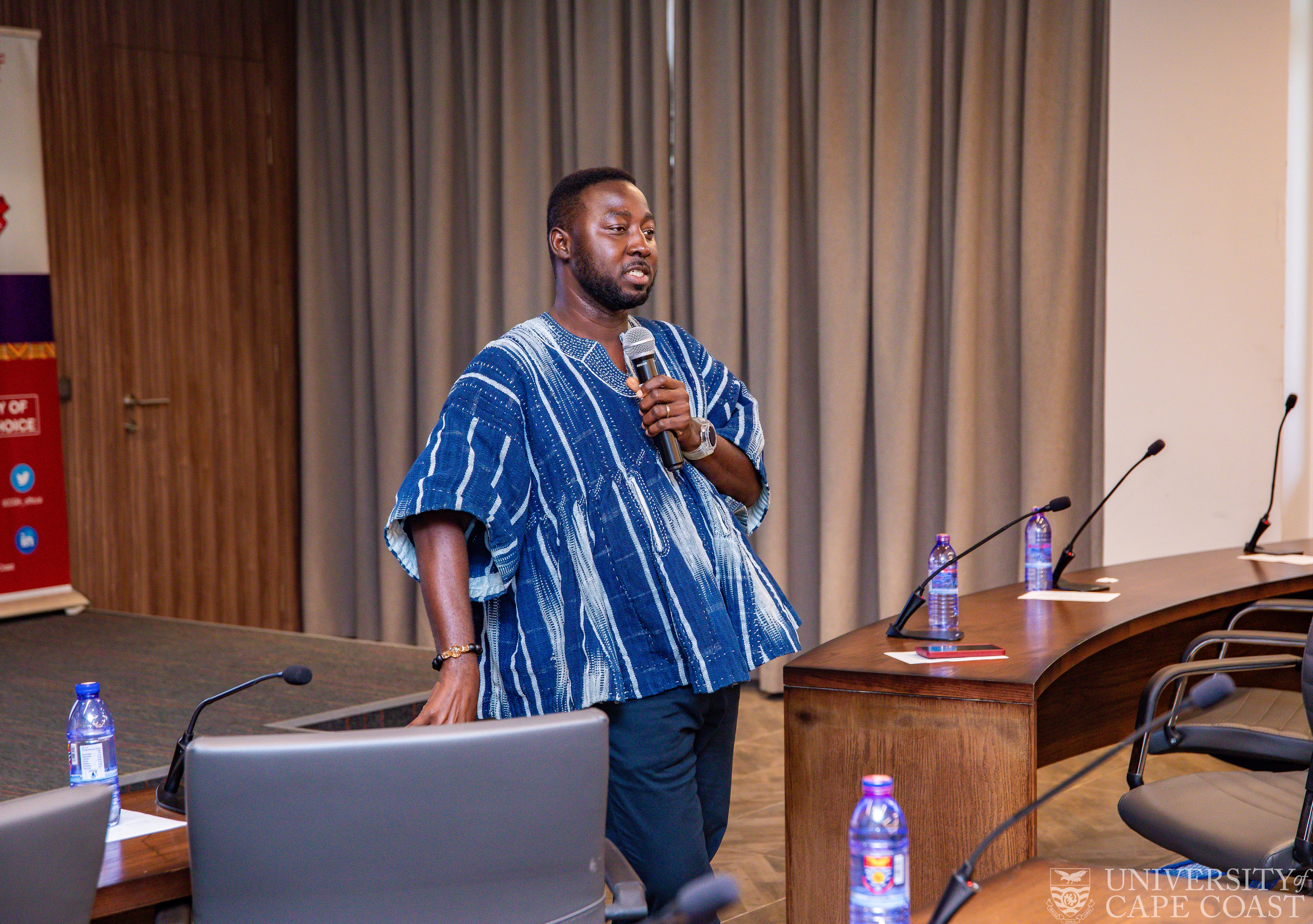The Directorate of Research Innovation and Consultancy (DRIC) has organised a grantsmanship workshop to equip faculty with the requisite grant proposal writing skills.
The two-day workshop, which was held in collaboration with the Training and Development Section of the Directorate of Human Resource, was aimed at guiding participants through the process of writing effective grant proposals.
Participants were taken through research impact, sustainability of funds, and budgeting and financial planning.
Facilitators, including a Deputy Director of DRIC, Dr. Brandford Bervell, Prof. Francis Annor, and a Research Fellow at DRIC, Dr. Alex Boadi Dankyi, led the opening sessions, providing valuable insights into grantsmanship and identifying funding opportunities for faculty and researchers.
Prof. Francis Annor addressing the event
Prof. Francis Annor, speaking on Research Impact, encouraged researchers to ensure that their research had an impact on society.
"Research impact can manifest in advancements in knowledge, policy changes, new technologies, and improvements in health and well-being," he added.
Prof. Annor stressed that the impact went beyond the publishing of research findings and urged researchers to engage key stakeholders in their research for their input.
He indicated that there were many research impacts, including academic, social, cultural, health, environmental, and economic.
He also encouraged participants to stay informed about potential funding opportunities by attending relevant conferences, subscribing to funding tools, and exploring platforms like Research Professional Africa.
Dr. Brandford Bervell, speaking on the topic, ‘Sustainability of Funds,’ urged researchers to sustain the gains in their project even after the tenure of the project.
Dr. Brandford Bervell
According to him, funders support projects, and when they mature for three or five years, they expect researchers to sustain the project beyond the lifespan of the funding.
He urged researchers to meet the expectations of donors or funders to attract more funding from the funding organisation.
Some participants in the training
For his part, a Technology Transfer Officer at DRIC, Mr. Isaac Nketsiah, speaking on Intellectual Property (IP), advised researchers to develop intellectual property to guide their research and scholarly works to enable them to generate income from the commercialization of their works.
That, according to him, would enable them to protect their IP rights.
Mr. Isaac Nketsiah
He explained to participants the impact of IP rights, such as patents, trademarks, and copyrights on their research innovations.
Mr. Nketsiah encouraged faculty to visit DRIC to be abreast of the IP rights, to protect the ideas they had created
The sessions were followed by a practical activity where participants were divided into interdisciplinary groups and presented their proposals for feedback. Some participants were excited about the platform created to equip them with the grant proposal writing skills.
Ms. Ivy Serwaa Gyimah Akuoko, an Assistant Research Fellow at the Centre for Coastal Management – Africa Centre of Excellence for Coastal Resilience (ACECoR), expressed her excitement about learning grant writing techniques.
"When I saw the advertisement, it was a topic I was interested in and wanted to gain more insight into. I am also into many fisheries projects, so grants are important to us," she said.
Dr. Charles Roland Haruna, from the Department of Computer Science and Information Technology, also appreciated the practical approach of the workshop, particularly the sessions on identifying funding opportunities and seeking support before submitting applications.
"This experience has been transformative. It is not just about skills; it is about the mindset shift that I can contribute significantly to global research narratives," he added.
The workshop is a giant step in the ongoing attempt to produce a new batch of academics with the requisite grantsmanship skills.
With this initiative, the University aims to equip faculty members to contribute to the acquisition of knowledge and innovation across Africa.
Source: Documentation and Information Section-UCC




